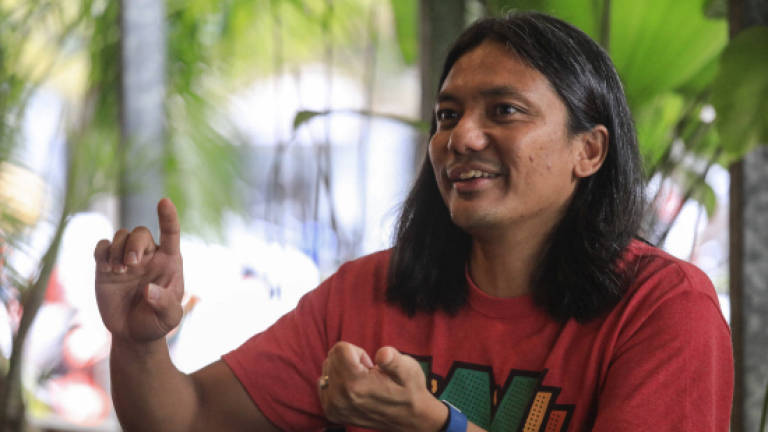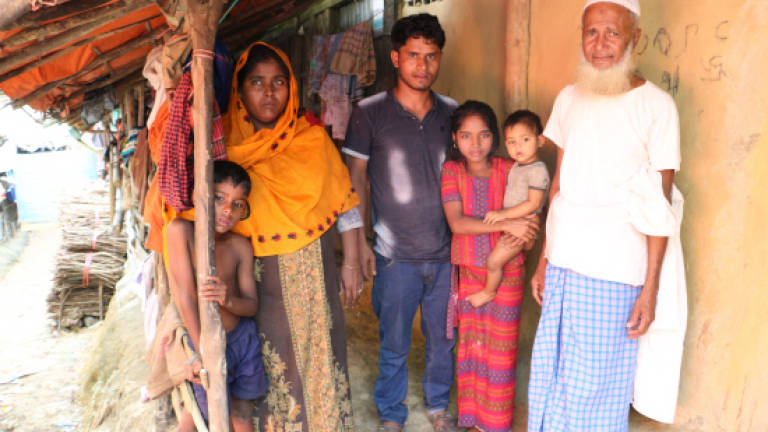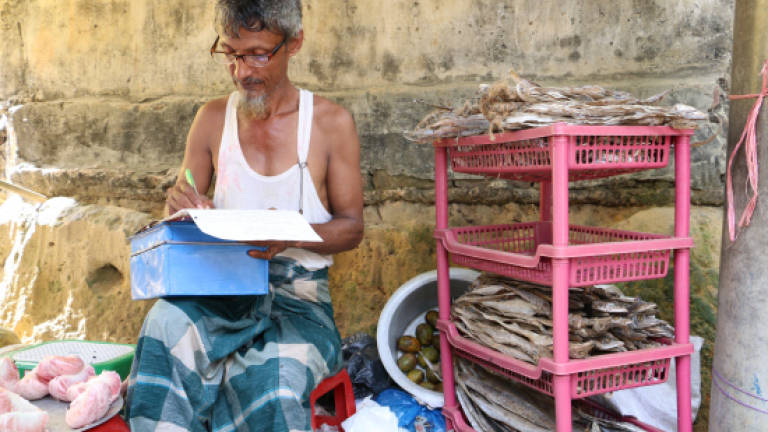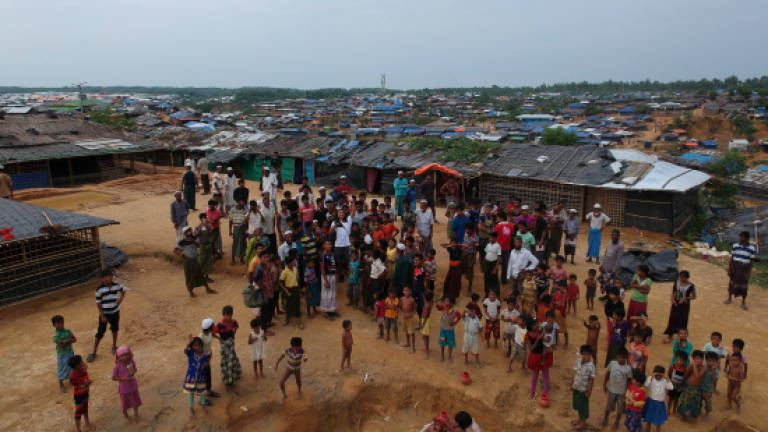Caged like animals




THE ROHINGYA refugee crisis is the main focus of a new documentary by former journalist, author and filmmaker Zan Azlee, who feels as a journalist, he should be telling stories that affect his region, Southeast Asia.
The hour-long documentary, We are Animals, will give audiences a glimpse into life in the Kutupalong refugee camp in Bangladesh, inhabited mostly by Rohingya Muslims who fled from persecution in Myanmar.
"Kutupalong is said to be one of the biggest refugee camp in the world, and the camp has one million refugees," says Zan, 40, on his latest work.
Last October, Zan followed non-profit organisation Mercy Malaysia to the camp as part of a mission to provide humanitarian aid. "I spent two weeks in the camp," he adds.
The result is his documentary, which focuses on two residents of the camp – 22-year-old Hafes Ullah who was born and raised in refugee camps in Bangladesh, and Muhammad Ishak in his 50s who had witnessed the murder of his parents in Myanmar.
Zan says the idea for the title of documentary was, in fact, inspired by something Hafes said in his interview. "He said: 'We live worse than animals. Even dogs have more rights than us'."
Zan adds: "Hafes has never seen the world [outside the camps]. Despite his circumstance, he is not bitter. He has a positive outlook in life.
"If I had grown up in his shoes, I would probably have joined some rebel army.
"But Hafes is convinced that he will see the outside world. In fact, he is trying to get an international passport."
Zan is also impressed by this young man's fluency in English, which is good enough for him to act as an interpreter for foreign journalists who came to the camp to interview the refugees.
"Hafes learned English just from reading magazines," Zan says in admiration.
The filmmaker is also impressed by his other key character, Muhammad, who sells vegetables in the camp to earn some money.
"Ishak never harps on his difficulties, and he always make the best of his situation," he adds.
While the majority of the foreign journalists were looking into rumours of refugees being involved in prostitution, Zan says he was more keen on showing the daily lives of these refugees.
"I was not looking for a sensational story about the camp," he explains. "I wanted to do a normal everyday story. I want my audience to see how the two men go about their daily lives while caught in an extraordinary circumstance.
"I want to show that even though they live in a camp, they are no different from us. They have dreams and want a better life, just like us. Unfortunately, their circumstances do not allow them to fulfil their dreams."
Indeed, both men featured in the documentary present an interesting paradox.
One was born in a refugee camp, while the other was brought to a camp, and their different background offers audiences different insights into the lives of these refugees.
As to the many negative assumptions that refugees can ruin a country as they will "steal jobs from locals" and create more crimes and social issues, Zan does not share these sentiments.
"[In our country] refugees and immigrants are taking up jobs that we Malaysians do not want to do," he says. "They are not recognised as refugees. They are seen as pendatang haram (illegals).
"When you are a pendatang haram, it is difficult to earn a living. When these illegals cannot earn a living, they might resort to crimes such as stealing."
Zan advocates that Malaysia recognises these people as refugees, and use them for as a positive work force.
We are Animals will première this Thursday at 4.30pm at The Refugee Fest at Black Box Publika.
For more, visit The Refugee Fest website.